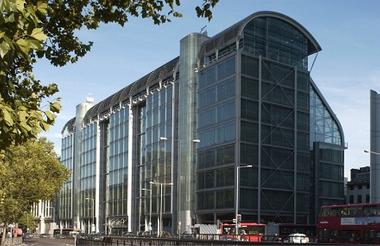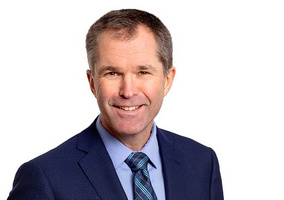The charity sector has a problem with staff pay but Wellcome’s chief investment officer earning over £5m last year is not part of it.
This week, the wealthiest charity in the country published its latest accounts, which revealed that its highest-paid member of staff (also the most handsomely remunerated person in the sector) once again earned a lot of money last year.
Outgoing chief investment officer Nick Moakes’s pay packet increased to over £5.06m in the year to September 2024, drawing criticism in the Guardian from the High Pay Centre.
Large charities are usually criticised in the national media for the amount they pay chief executives, so it is refreshing to see a discussion about the sector’s actual highest earner for once.
The think tank’s head of communications Andrew Speke said it was hard for the charity to justify the probably “huge gap” in pay between Wellcome’s investment staff and its lowest-paid workers.
“A figure of £5m is likely to be more than 100 if not 200 times the pay of Wellcome’s lowest-paid workers, and it’s difficult to see how such a huge gap in pay can be morally justified or necessary in order to attract competent leaders,” he is quoted as saying.
The sector’s low pay problem
Speke is right to highlight Wellcome’s lowest-paid staff, because that is where the charity sector’s problem lies. Charities do not pay as much as their private sector counterparts and tend to be less generous employers than those in the public sector.
This has a detrimental effect on low-paid charity sector workers, with two-thirds of junior roles outside London paying below the voluntary “real living wage” and nearly half of those in the capital also failing to cover basic living costs.
It also impedes the sector’s efforts to attract a more diverse workforce, with fewer people without degrees or from minoritised ethnic backgrounds employed by charities than in the wider UK economy.
But Wellcome is accredited by the Living Wage Foundation, meaning it pays all staff including those employed by its contractors at least the real living wage. So, does it matter that its highest-paid employees earn hundreds of times more?
Not a normal charity
Wellcome is criticised by newspapers for its high pay because it is a charity, so there is a perceived public interest in donations being splurged on fat cat salaries instead of the organisation’s ethical cause.
It is not the first time it has drawn flack from the nationals, either. Two years ago, a critical Telegraph piece sparked a debate about Wellcome offering to pay its chief equity, diversity and inclusion officer £211,500 a year.
But Wellcome is not a normal charity. It does not ask volunteers to stand outside supermarkets rattling a collection tin to fund its latest scientific research.
Wellcome now holds £37.6bn in assets, around four times the size of any other charity, and generates most of its income from its investment returns.
Fair to pay £5m?
With the charity pledging to spend £16bn over the decade to 2032 to support research and science, maintaining high investment returns is therefore crucial and it has ultimately been Moake’s responsibility to ensure this happens.
Overall, Wellcome’s investment executive team earned £11.1m last year as its funds gained £800m in value, up from the £9.45m given to the team in 2022-23 when the charity’s assets declined by £1bn.
On Speke’s point on whether Moakes’s £5m-worth of earnings was “necessary in order to attract competent leaders”, Wellcome says it benchmarks its investment team’s remuneration using market data and external consultants Aon.
“Aon provided an asset management sector overview to benchmark pay and reward proposals for the investments team to provide assurance that the pay and reward package was appropriate to attract and retain excellent staff, while also recognising Wellcome’s charitable status,” its latest accounts read.
In response to the Guardian piece, Wellcome also said that much of Moakes’ reported £5m earnings last year “will be deferred and dependent on the future performance of our investment portfolio”.
Wellcome also claims to save “hundreds of millions a year” by employing an in-house investment team rather than outsourcing to external fund managers.
It is hard for most people, and indeed most charities, to comprehend what £37.6bn-worth of assets looks like but it is because of this endowment that the organisation’s pay is also relatively high, particularly within its investments team.
It would be unfair, therefore, for coverage such as the Guardian’s to prompt members of the public to think charity sector pay generally is too high, when the opposite is arguably true.
Related articles











